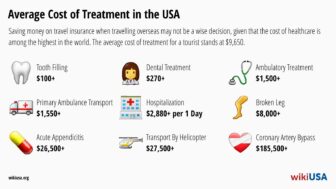The United States of America does not mandate vaccinations for visitors. The risk of infection in this country is absolutely minimal; for instance, malaria does not occur in the USA at all. Ensure to verify the validity of your routine vaccinations. The information in this article should be considered a general recommendation, and it’s always advisable to consult your doctor about your health.

-
Table of Contents
COVID-19 Vaccination as a Condition of Entry to the USA
For current entry requirements regarding vaccinations, see COVID and Travel to the USA> and the official CDC.gov website.
-
Hepatitis A and B Vaccination
Hepatitis B vaccination is recommended for travellers who will be in potentially hazardous environments and have a real risk of contracting it, such as through sexual contact.
Hepatitis A and hepatitis B vaccines can be administered either separately or combined in three doses. The vaccines used are Twinrix Adult and Twinrix Paediatric. Protection is for life.
Hepatitis A vaccination is given in two doses at least 6 months apart. The vaccines used are Avaxim, Havrix 720 Junior, and Havrix 1440 Adult.
Hepatitis B vaccine is administered in three doses, providing nearly lifelong protection. Engerix is the vaccine commonly used.
-
Rabies Vaccination
Rabies vaccination is generally unnecessary for the majority of trips to the USA. Only visitors who will be in regular contact with wildlife should consider it.
The estimated cost of the vaccination at a travel medicine center is around $80, and the Rabipur and Varorab vaccines are used.
-
Lyme Disease Vaccination
Lyme disease is a severe disease that, similar to tick-borne encephalitis, is transmitted by ticks. In the USA, Lyme disease primarily occurs in the states of Wisconsin, Pennsylvania, and New York.
Currently, there is no vaccination against Lyme disease. The risk of infection can be mitigated by using repellents, which I recommend purchasing only in the United States.
-
Recommended Vaccinations
As part of routine prevention, check the validity of these vaccinations:
💉 Tetanus
The tetanus vaccination is mandatory in some countries and is administered after birth. Adults receive a tetanus vaccine every 10-15 years.
💉 Diphtheria
Several vaccines are administered against diphtheria, with the last one typically given between the fifth and sixth year of life. Diphtheria is a severe infectious disease that causes extreme strep throat. Initial symptoms include fever, malaise, and sore throat.
💉 Polio
This disease does not occur in the United States. Proof of vaccination may be required in rare instances when you arrive in the U.S. from at-risk areas (Pakistan, Afghanistan, or India). Polio vaccination is given to young children.
💉 Measles
Measles vaccination is administered at 15 months of age, with a second dose given less than a year later.
If you are uncertain whether you have valid vaccinations against these diseases, consult your vaccination center.
-
Vaccination Centers
There are private vaccination centers in every major city, or you could visit a travel medicine center in a hospital.
Most health insurance companies cover a portion of the cost of vaccinations, typically once per calendar year. If the vaccine requires two doses spaced apart, plan to get vaccinated at the turn of the year. This way, you can utilize your insurance benefits twice.
-
The Importance of Travel Insurance
While it’s crucial not to overstate the need for vaccinations, I strongly recommend obtaining travel insurance for the USA. Healthcare in America can be very costly. For instance, routine treatment for acute appendicitis can cost up to $27,500, while the average cost of treating an insured tourist in the United States is $10,500.
Visitors who are uninsured or underinsured are also billed for treatment after leaving the USA.

 10 Best Photo Places in the USA
10 Best Photo Places in the USA




Contribute with Your Question or Personal Experience